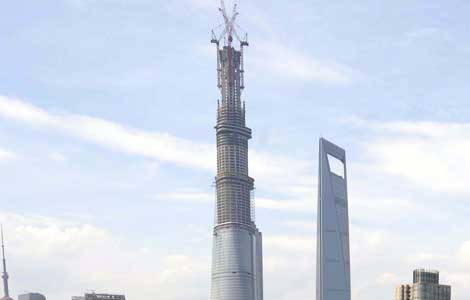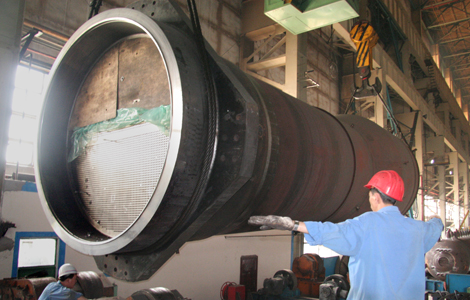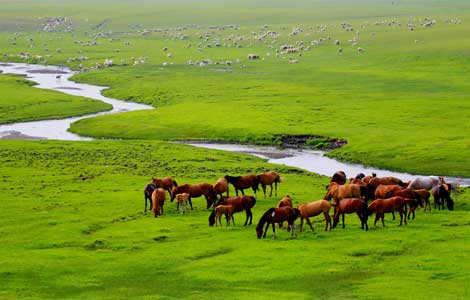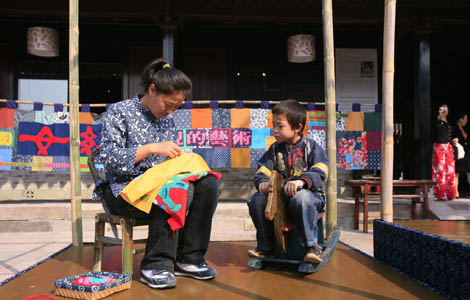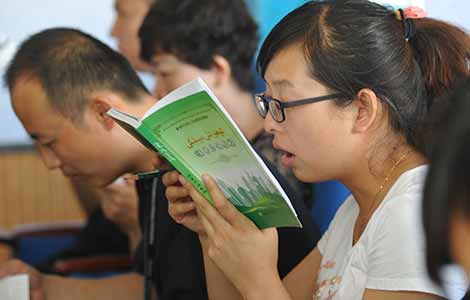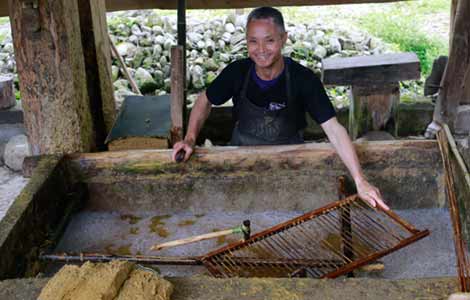A center with power of 2 billion people
Updated: 2013-08-08 08:11
By Kavi Chongkittavorn (China Daily)
|
||||||||
Beaming with confidence, Ma Mingqiang says he is determined to do everything in his capacity to strengthen people-to-people awareness and understanding between ASEAN and China during his three-year tenure. Why? "It is the weakest link," he says, between ASEAN and China, one of their most important dialogue partners with a combined population of nearly 2 billion. Ma's remark matters, because he is the secretary-general of ASEAN-China Center and takes his pledges seriously.
Indeed, given the current state of ASEAN-China relations, marred by the South China Sea disputes, the Beijing-headquartered ACC has done much to ease tensions in the region and bring together people from different countries for friendly discussions and celebrations. The center has organized myriad events and activities to build trust between the two sides.
The latest event to be organized by the center was Indonesian Night in Beijing - a program to promote the culture and food of Indonesia. It will be followed by an exhibition of paintings by renowned Chinese artists in Bangkok from Aug 13 to 19 to celebrate the 10th anniversary of the ASEAN-China strategic partnership
As former deputy director of the Ministry of Foreign Affairs' Asian Department, Ma is no stranger to the ASEAN circle. Those who have interacted with him in his earlier capacity consider him a maverick because of his straightforward views, which he says has helped him build networks and forge collaboration with private and public sectors in China and ASEAN. "He knows ASEAN like the back of his hand," says a diplomat from ASEAN. "He is the right man in the right job."
In 1991 when China became a full dialogue partner of ASEAN, Ma was serving as the third secretary in the Chinese Embassy in Kuala Lumpur and quickly got engaged with ASEAN, and since then he has been working to strengthen ASEAN-China relations. Ma was part of the team led by current Foreign Minister Wang Yi that negotiated the Declaration of Conducts of Parties in South China Sea in 2002.
The ACC had a soft opening in August 2011 as an intergovernmental organization. It is considered a milestone in ASEAN-China relations and is aimed at promoting multifaceted cooperation. It is the newest center in the ASEAN+3 family, preceded by the ASEAN-Japan Center (1981) and the ASEAN-South Korean Center (2009). And the leaders from the three centers have already held discussions on how to improve ASEAN+3 relations.
This is significant because China-Japan and Japan-South Korea relations have been under strain over maritime claims for some time. In fact, the three centers are just a few platforms where still open regional relations, albeit non-political, can be discussed.
All the three centers are tasked with promoting trade, investment and tourism with ASEAN. But the ACC has the added task of promoting educational and cultural exchanges between the two sides because, as Ma says, cementing people-to-people contacts is critical to the sustainability of ASEAN-China ties.
One of the center's priorities is to bring students from ASEAN member states and China together so that they would get to know and understand each other better.
About 70,000 students from ASEAN member states are currently studying in China, while 110,000 Chinese students are pursuing studies in Southeast Asia. "These students connect ASEAN and China. We have to strengthen their bond," Ma says.
Tourism, too, plays an important role in people-to-people contacts, he says. Last year, 83 million Chinese traveled aboard, but only about 10 percent of them visited Southeast Asia. Ma is now encouraging more Chinese to visit ASEAN member states. "Everything they want from overseas tours, including sun, sea and sand, to food and shopping, especially brand names, they can get them all in the region without paying for expensive tickets to faraway places," he said.
Perhaps the introduction of ASEAN member states' cultures to ordinary Chinese is a good way of making more of them to visit Southeast Asia. Actually, the ACC is already on the job; it introduced the famous Thai Puppet Troupe Joe Louis to the Chinese TV audience on the eve of the Chinese New Year in January. The troupe performed live on Beijing TV. And on ASEAN Day (that is, Aug 8), the center will organize a special event to mark the 1 million-plus users of popular micro-blog Sina Weibo in ASEAN member states. Selective online fans and ASEAN diplomats have been invited to the program.
As part of ASEAN's commitment to contribute to the ACC, Thailand has sent a director-level official to head the education, culture and tourism sector of the center, while Indonesia has dispatched an official to help with matters related to information and public relations. Other ASEAN member states will take turns to contribute human resources to the center on a three-year rotation basis.
Furthermore, several ASEAN institutes have been set up in universities in various countries including Russia, the United States, Thailand and Singapore, a move complemented by the ACC's emphasis on education and culture. Japan and South Korea might want to adopt this approach to strengthen relations, which would resonate well with the ASEAN agenda of improving people-to-people awareness and understanding among ASEAN and China, Japan and South Korea.
The author is assistant group editor of The Nation in Thailand.
(China Daily USA 08/08/2013 page12)
Most Viewed
Editor's Picks

|

|

|

|

|

|
Today's Top News
China's innovation prowess looms large
US, EU concerned about stalemate in Egypt
EU to continue anti-subsidy solar probe
Nation poised to import more GMO products
Illegal Shanghai stay costs foreigner 10,000 yuan
China to be leading business travel market
Cards make paying global tuition easier
Probes not targeting foreign brands
US Weekly

|

|


